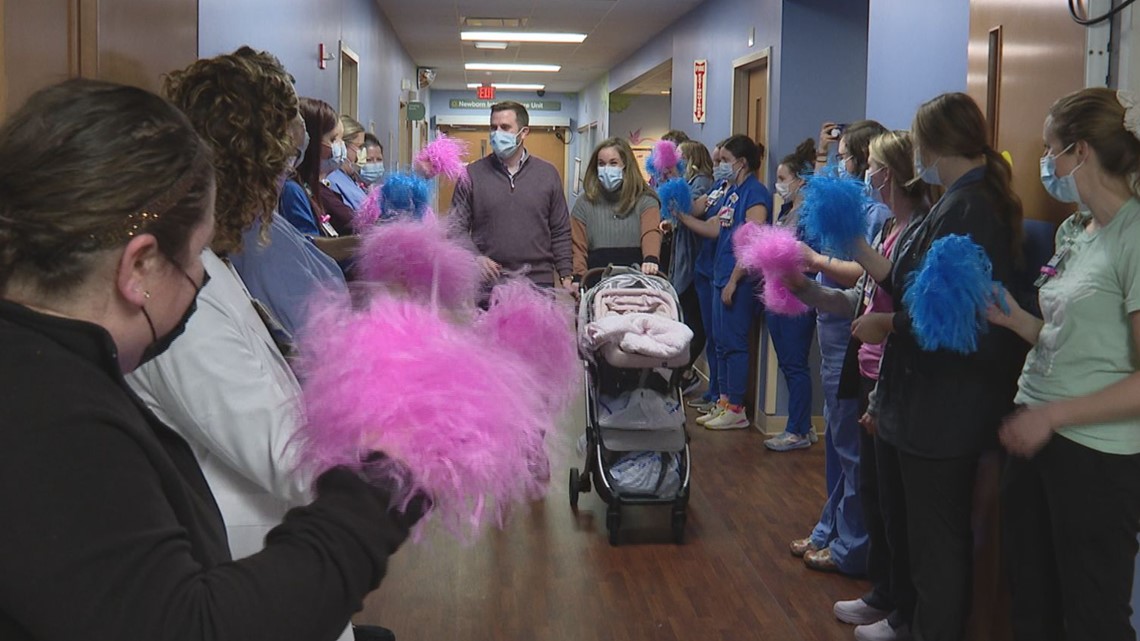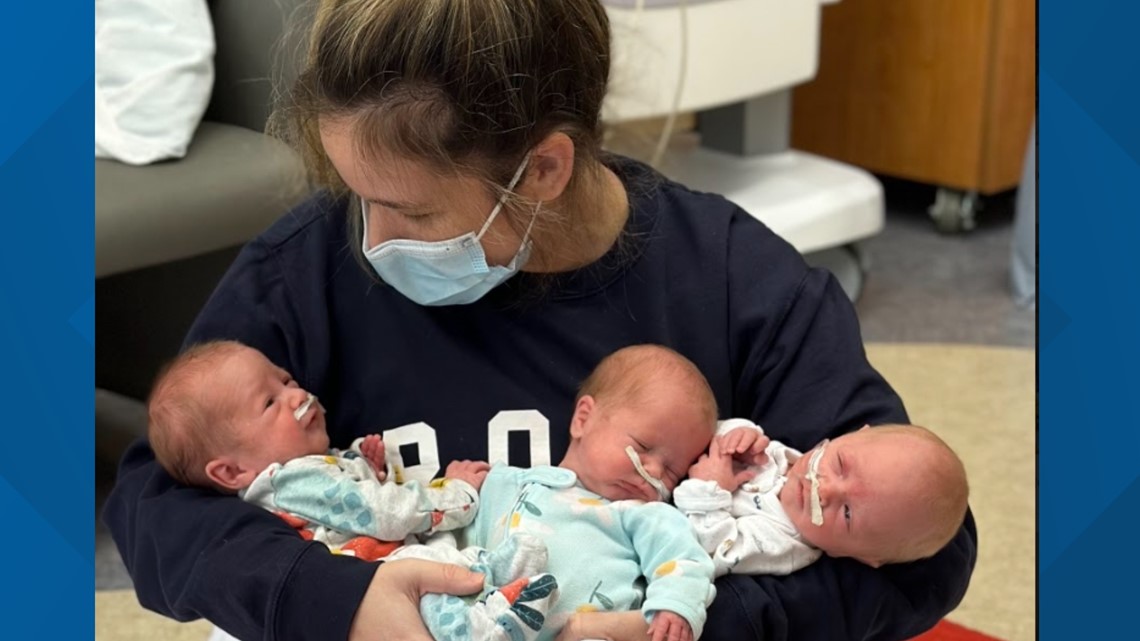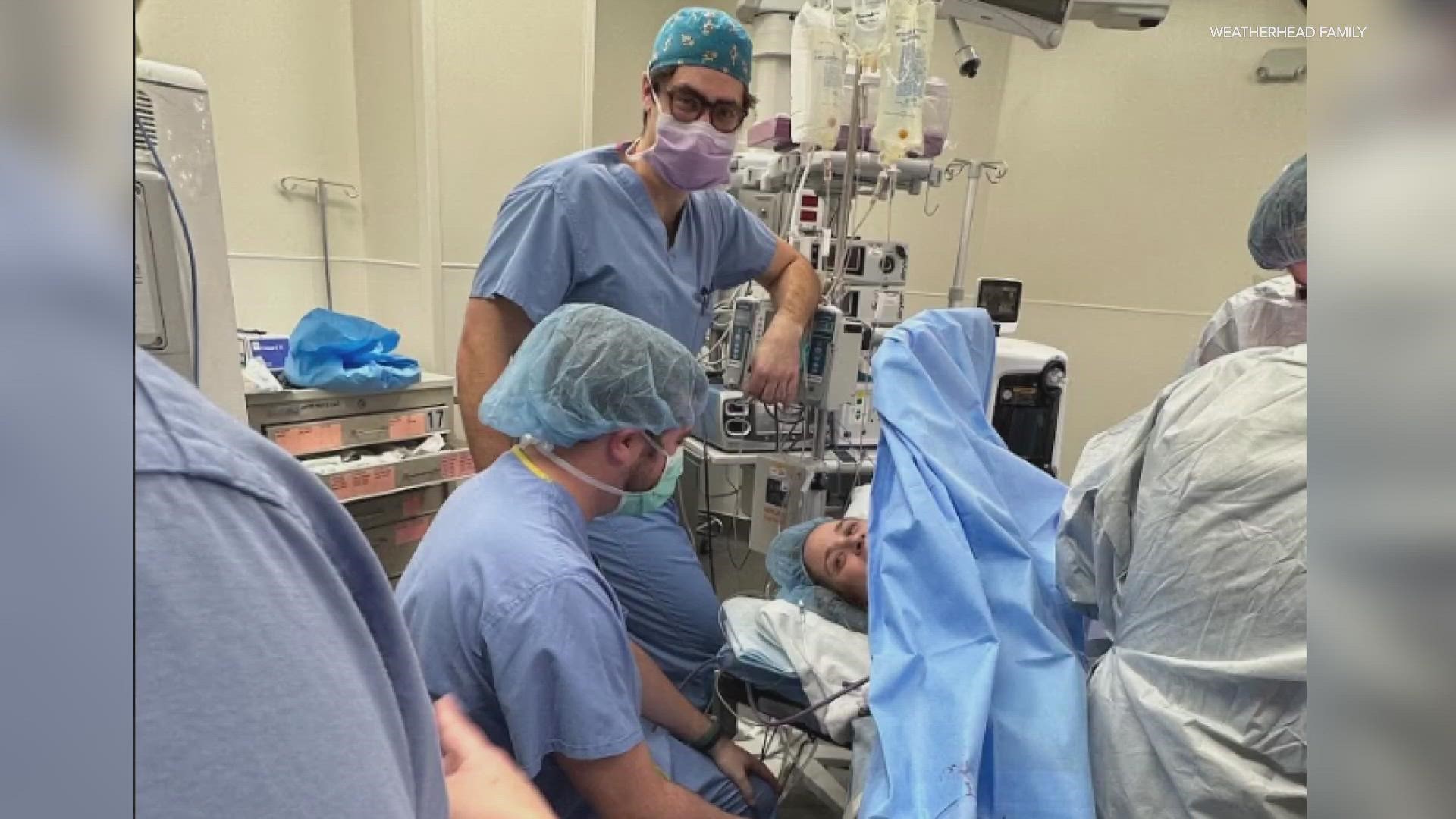INDIANAPOLIS — Indiana's maternal mortality rate has long concerned Hoosier women and healthcare providers.
The state has the third-highest rate of maternal mortality in the nation.
Doctors say not getting women the critical care they and their child need quickly can be life-threatening or even fatal. For one Westfield woman, quick action and detailed care from her doctors helped save four lives in the delivery room this past December.
Inside Peyton Manning Children's Hospital, two reunions draw Marybeth and Ben Weatherhead inside to the NICU. They brought in newborns Penelope and Henry to visit the care team that saved all of their lives, while taking baby Archie home from the NICU with his siblings.
Marybeth first came into the hospital before Halloween, around 26 weeks pregnant in pre-term labor. Doctors were able to treat her, stop her labor and she was sent home.
"We went home for three nights and then came back for about a 50-day stay," Marybeth said.
Days later, she and her husband came back to the hospital. She again thought she was in labor.
Doctors told her she was having a heart attack.


"We were both in total denial, like no," Marybeth said. "Are you sure?" Ben asked. "That can't be happening," Marybeth said with a laugh.
Marybeth was having spontaneous coronary artery dissection (SCAD). It happens when a tear forms in a blood vessel in the heart.
"Very serious," said Dr. Tovah Buikema, maternal fetal medicine director with Ascension St. Vincent. "SCADs can have a very high risk for mortality for both the mom the fetus involved."
Buikema said SCADs are the most common form of heart attack in pregnancy. It can be life-threatening or even fatal.
And Buikema said there's not much doctors can do.


"There's not. Most of the treatment for SCAD is just watch and wait," Buikema said. "A lot of times, there is no treatment. It's just allowing this lesion or this artery dissection to heal on its own."
Fast action and care are critical. Buikema said not all obstetricians and providers are familiar with SCAD in pregnant women.
"Had she presented to a facility that didn't have the resources, it may have gone unrecognized for a significant amount of time. I'm not sure her outcome would have been as good," said Buikema.
For the next 30 days, Marybeth and Ben waited from the hospital as her heart healed. Her next hurdle would prove just as challenging.
"I think there were at least 30 people there for the babies, and then maybe another 15 for me, so we had a full parade," Marybeth said.
That parade welcomed Henry, Penelope and Archie to the world on Dec. 7, the triplets born weeks ahead of schedule.
"I don't know if we would have made it here without all of them," Marybeth said.
"To know that we made it that full 30 days and she's still doing well and is able to bring home three healthy babies is a huge achievement," Buikema said.
“And we cannot thank them enough for the care, the way they took care of Marybeth, it was incredible, but then they took care of the three babies as well, too,” Ben said.
After being delivered prematurely, the triplets needed to stay in the NICU for a few extra weeks. Now, mom and dad are anxious to have them all at home.
"Because we've been in the hospital so long, it'll be so nice to have our entire family under one roof," Ben said.
Henry was released from the NICU first, then Penelope, able to make the trip home to meet their older sister, Charlotte. Finally, Archie was able to join his siblings, headed home to complete this family of six.
After saving four lives in this hospital, the care team reunites with the Weatherheads and their triplets one last time, happy to send this family home.

